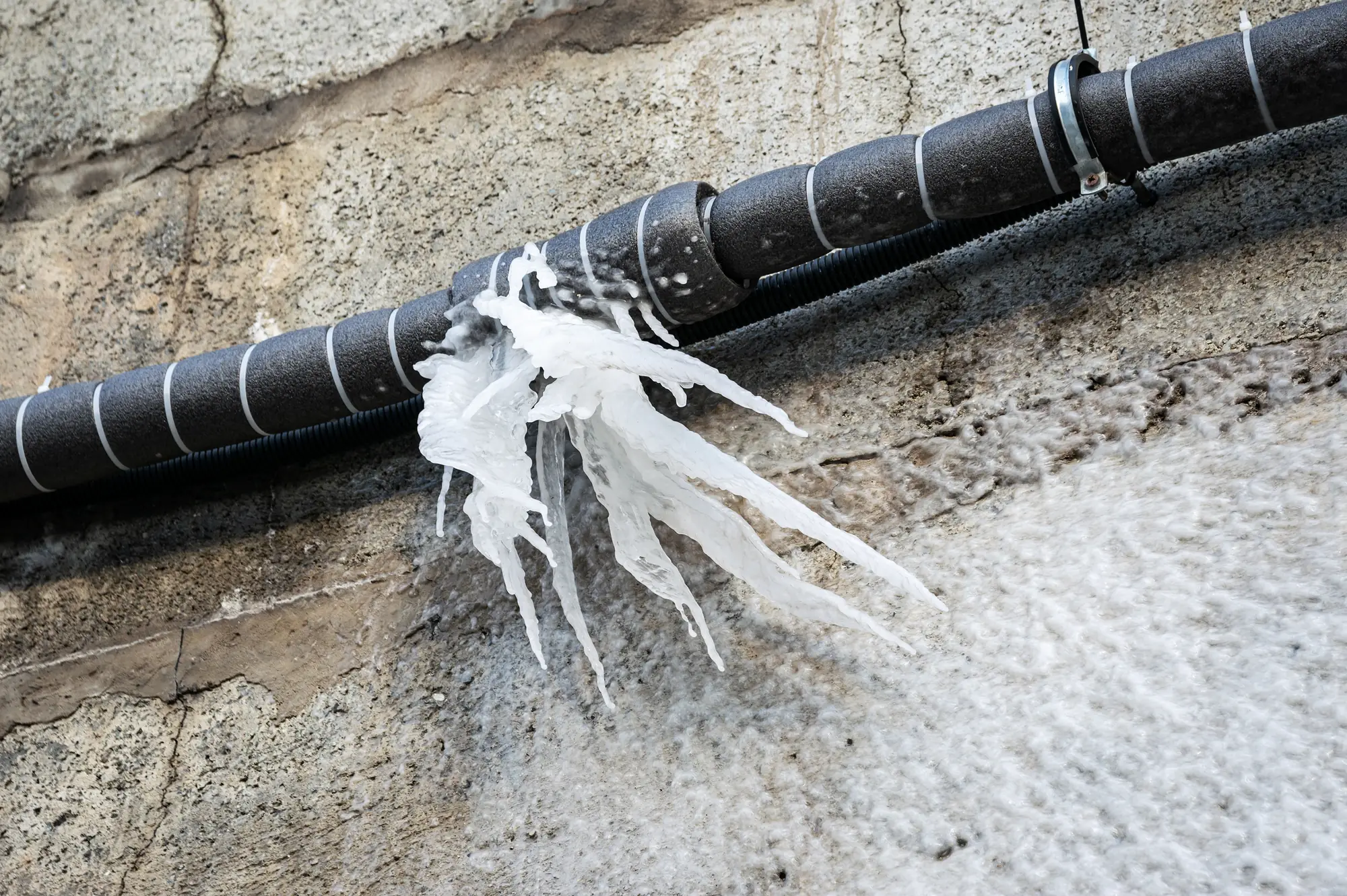
Hear From Our Customers
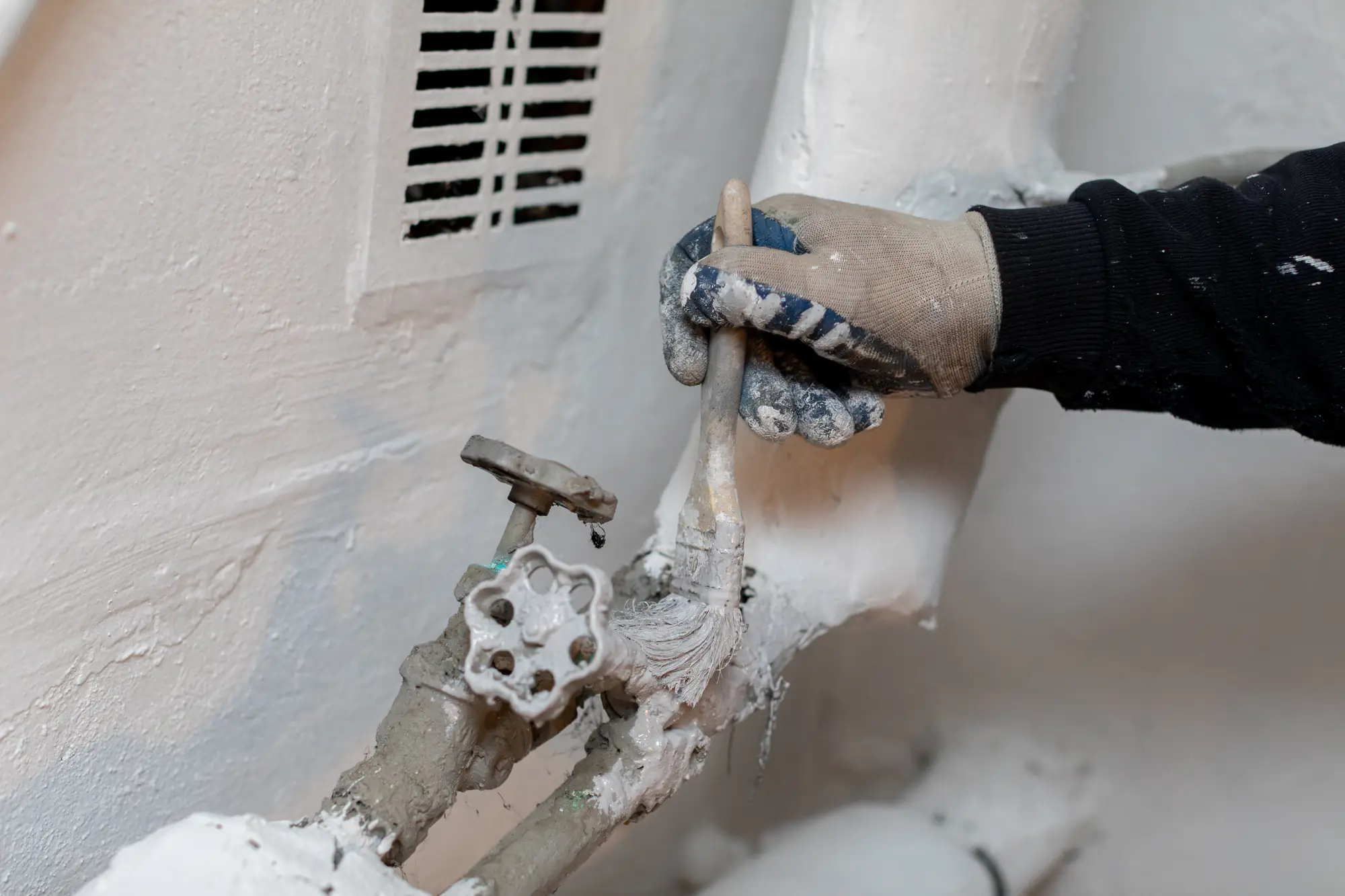
You turn the faucet and nothing comes out. In Markham’s freezing winters, this usually means one thing: frozen pipes. And you know what comes next if you don’t act fast.
When pipes freeze, they don’t just stop your water flow. They’re building pressure that can burst and flood your home with hundreds of gallons of water in minutes. That’s thousands in damage to your floors, walls, and belongings.
We get your water flowing again the same day. Our professional thawing equipment safely restores flow without the risk of bursting that comes with DIY methods. No more hauling water from neighbors or wondering when your pipes will give out completely.
We’ve been handling Markham’s frozen pipe emergencies for over two decades. As Cook County locals, we know exactly how brutal these winters get and which pipes fail first.
Our licensed, bonded, and insured team responds 24/7 because frozen pipes don’t wait for business hours. We’ve seen the damage that happens when homeowners wait until morning or try dangerous DIY thawing methods.
Every technician carries professional pipe-thawing equipment designed for Illinois winters. We’re not just fixing today’s problem—we’re preventing next month’s disaster with proper technique and preventive guidance.
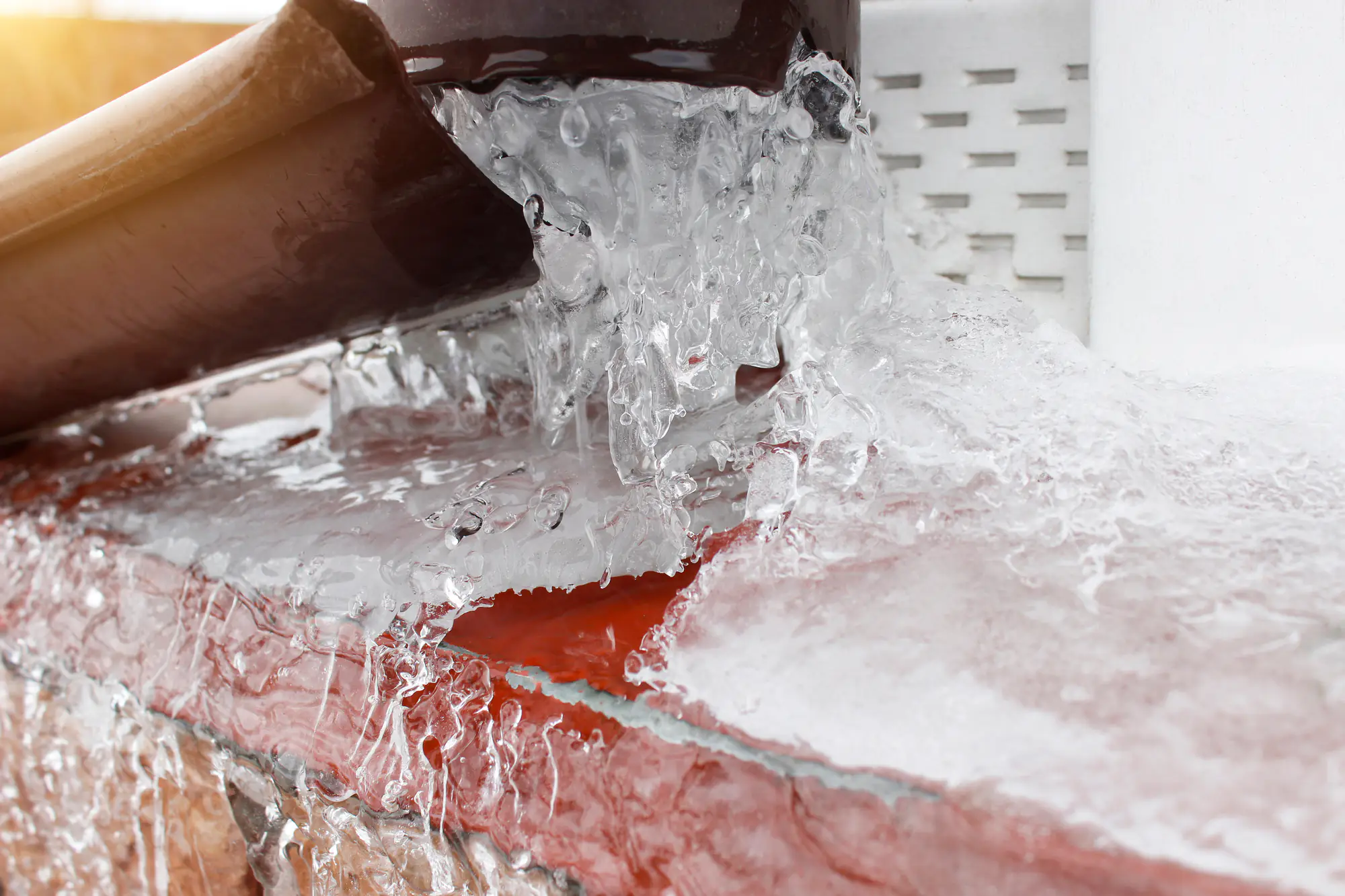
First, we locate the frozen section using professional detection methods. Most homeowners guess wrong about where the blockage actually is, which wastes time when every minute counts.
Next, we apply controlled heat using specialized thawing equipment. This isn’t a hair dryer or space heater—it’s professional-grade equipment that thaws safely without creating pressure spikes that burst pipes.
Finally, we test the entire system and check for any damage the freeze may have caused. We also identify vulnerable areas and give you specific steps to prevent this from happening again. Most repairs are completed within a few hours, getting your household back to normal fast.
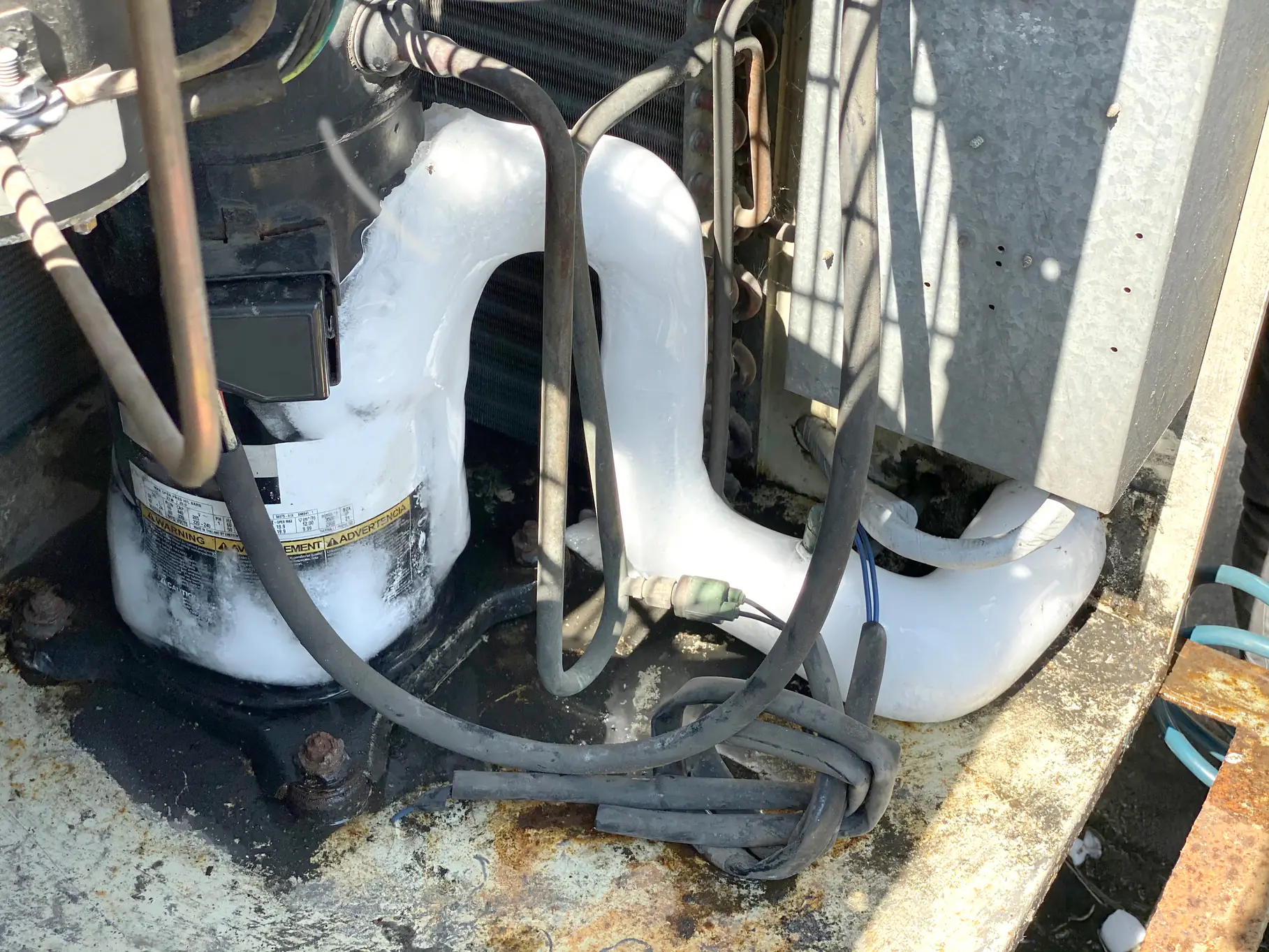
Ready to get started?
Every service call includes a complete system check to identify other vulnerable pipes before they freeze. In Markham, we typically find problems with pipes along north-facing exterior walls and in unheated areas like basements and crawl spaces.
You’ll receive specific winterization recommendations for your property. This includes insulation priorities, temperature settings, and which faucets to drip during extreme cold snaps. These aren’t generic tips—they’re based on your home’s actual plumbing layout.
We also provide proper documentation for insurance claims if any damage occurred. Most homeowners’ policies cover burst pipe damage, but you need professional documentation to support your claim. We handle this paperwork as part of the service.
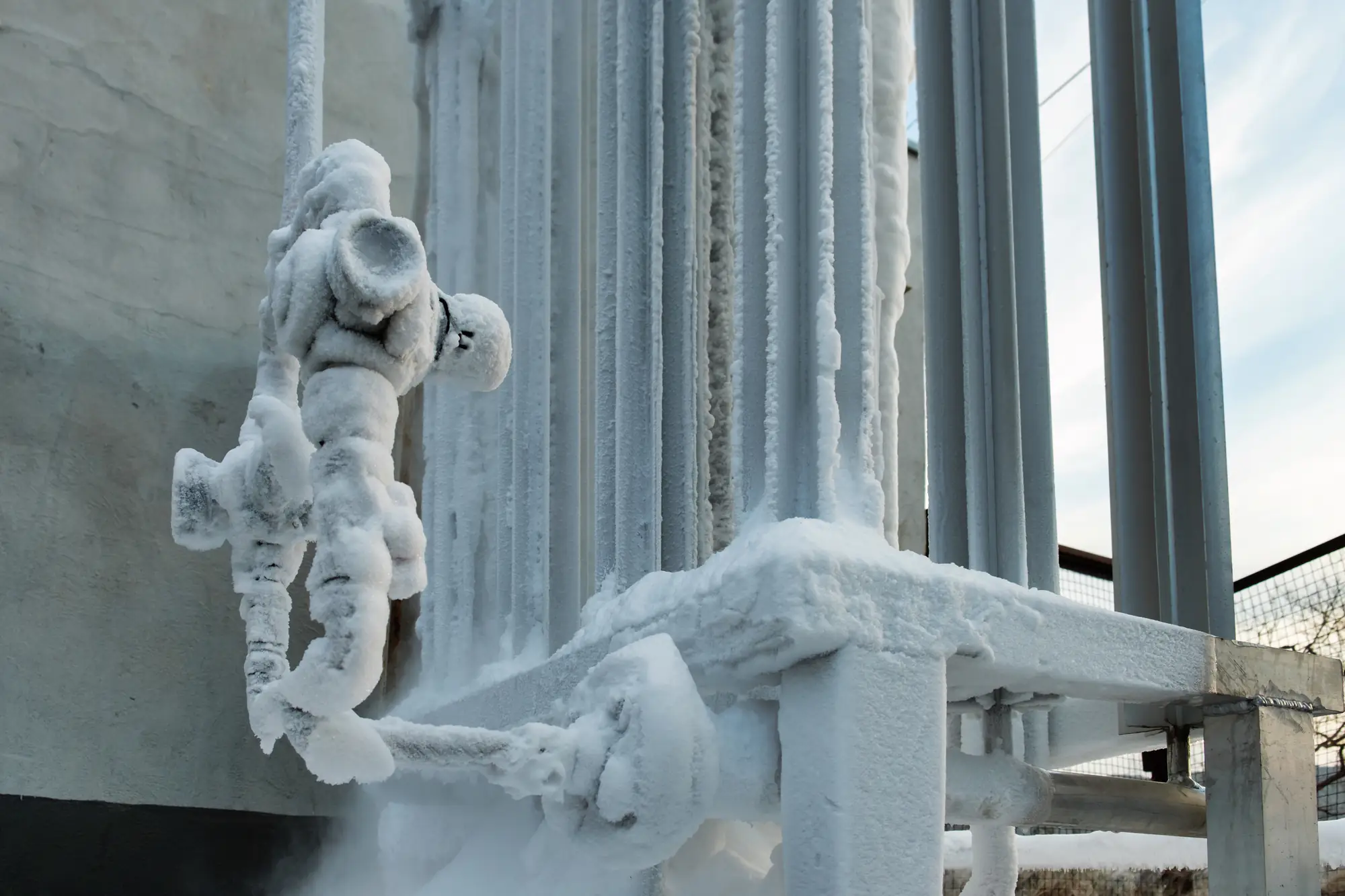
We typically arrive within 1-2 hours for frozen pipe emergencies in Markham. Our trucks are fully stocked with professional thawing equipment, so we can start work immediately upon arrival.
Time is critical with frozen pipes because they can burst within 6-8 hours once the freeze sets in. That’s why we prioritize these calls and dispatch the nearest available technician. We’re available 24/7 throughout Cook County, including weekends and holidays when most frozen pipe emergencies occur.
Professional thawing uses controlled heat application that prevents pressure spikes, while DIY methods like hair dryers or space heaters often create uneven heating that can burst pipes. We use specialized equipment designed specifically for pipe thawing.
DIY methods also miss the root cause. Homeowners typically can’t locate the actual freeze point and end up heating the wrong section. Our detection methods pinpoint exactly where the blockage is, making the thawing process faster and safer. We also check the entire system for damage that DIY attempts often overlook.
Simple thawing services typically range from $200-$500, depending on the location and complexity of the freeze. If pipes have already burst, repair costs can range from $500-$2,000 based on the extent of damage and water cleanup needed.
We provide upfront pricing before starting any work, so you’ll know exactly what to expect. Most homeowners insurance policies cover burst pipe damage and associated water damage, and we provide the proper documentation to support your claim. The key is calling us before pipes burst—thawing is always less expensive than repair and cleanup.
Yes, with proper preparation most frozen pipes can be prevented even in Markham’s harsh winters. The key is maintaining basement temperatures above 55°F and insulating pipes in vulnerable areas like exterior walls and unheated spaces.
We recommend specific steps based on your home’s layout: insulating exposed pipes, sealing air leaks around pipe penetrations, and knowing which faucets to drip during extreme cold snaps. During our service calls, we identify your property’s most vulnerable areas and provide a customized prevention plan. Many of our customers go years without repeat issues after implementing our recommendations.
First, turn on the affected faucet to relieve pressure and allow water to flow once thawing begins. Then call us immediately—don’t wait to see if pipes will thaw on their own. The longer pipes stay frozen, the higher the risk of bursting.
Never use open flames, blowtorches, or uncontrolled heat sources to thaw pipes. These methods cause rapid pressure changes that often burst pipes instantly. Also, locate your main water shut-off valve now, before you need it. If pipes do burst, shutting off the main water supply immediately can save thousands in water damage.
Yes, we respond to frozen pipe emergencies regardless of weather conditions. Our trucks are equipped for winter driving and our technicians are prepared to work in extreme cold conditions that often accompany the worst pipe freezing situations.
Storm conditions actually increase frozen pipe emergencies because power outages and heating system failures cause interior temperatures to drop rapidly. We prioritize these calls because we know homeowners are dealing with multiple problems simultaneously. Our 24/7 availability means you can reach us even during the worst winter weather when frozen pipes are most likely to occur.